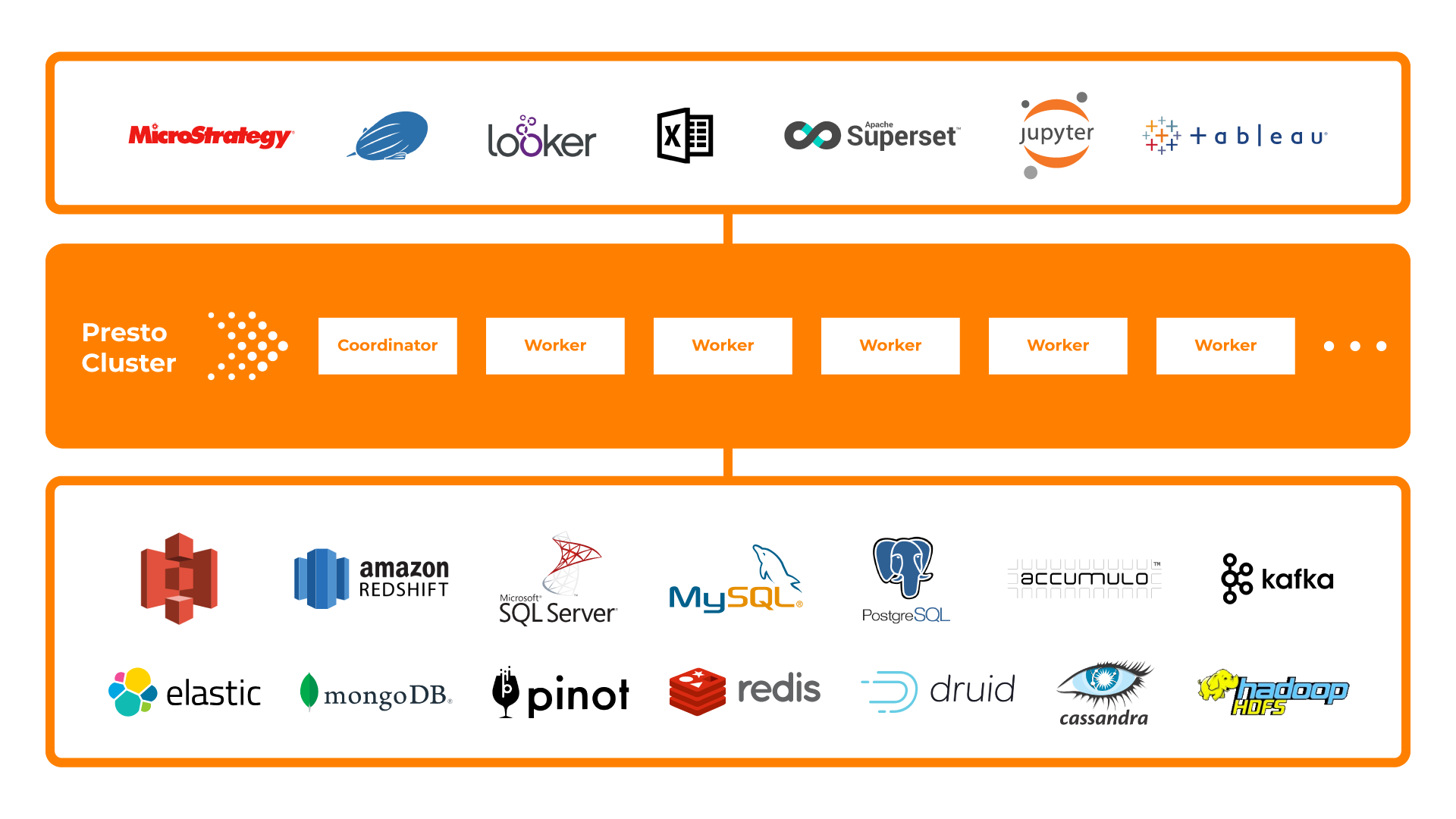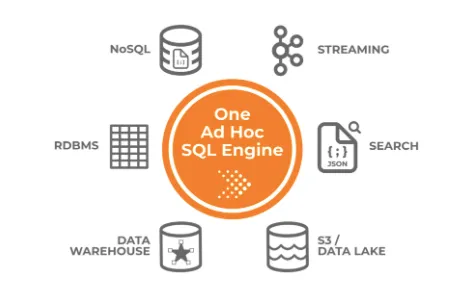The need for data engineers and analysts to run interactive, ad hoc analytics on large amounts of data continues to grow explosively. Data platform teams are increasingly using the federated SQL query engine PrestoDB to run such analytics for a variety of use cases across a wide range of data lakes and databases in-place, without the need to move data. PrestoDB is hosted by the Linux Foundation’s Presto Foundation and is the same project running at massive scale at Facebook, Uber and Twitter.
Let’s look at some important characteristics of Presto that account for its growing adoption.
**Easier Integration With Ecosystem **
Presto was designed to seamlessly integrate with an existing data ecosystem without any modification needed to the on-going system. It’s like turbocharging your existing stack with an additional faster data access interface.
Presto provides an additional compute layer for faster analytics. It doesn’t store the data, which gives it the massive advantage of being able to scale resources for queries up and down f based on the demand.
This compute and storage separation makes the Presto query engine extremely suitable for cloud environments. Most of the cloud deployments leverage object storage, which is already disintegrated from the compute layer, and auto-scale to optimize resource costs.
**Unified SQL Interface **
SQL is by far the oldest and the most widely-used language for data analysis. Analysts, data engineers and data scientists use SQL for exploring data, building dashboards, and testing hypotheses with notebooks like Jupyter and Zeppelin, or with BI tools like Tableau, PowerBI, and Looker, etc.

Presto is a federated query engine that has the ability to query data not just from distributed file systems, but also from other sources such as NoSQL stores like Cassandra, Elasticsearch, and RDBMS and even message queues like Kafka.
#big data #analytics #big data analytics #presto #data-science
